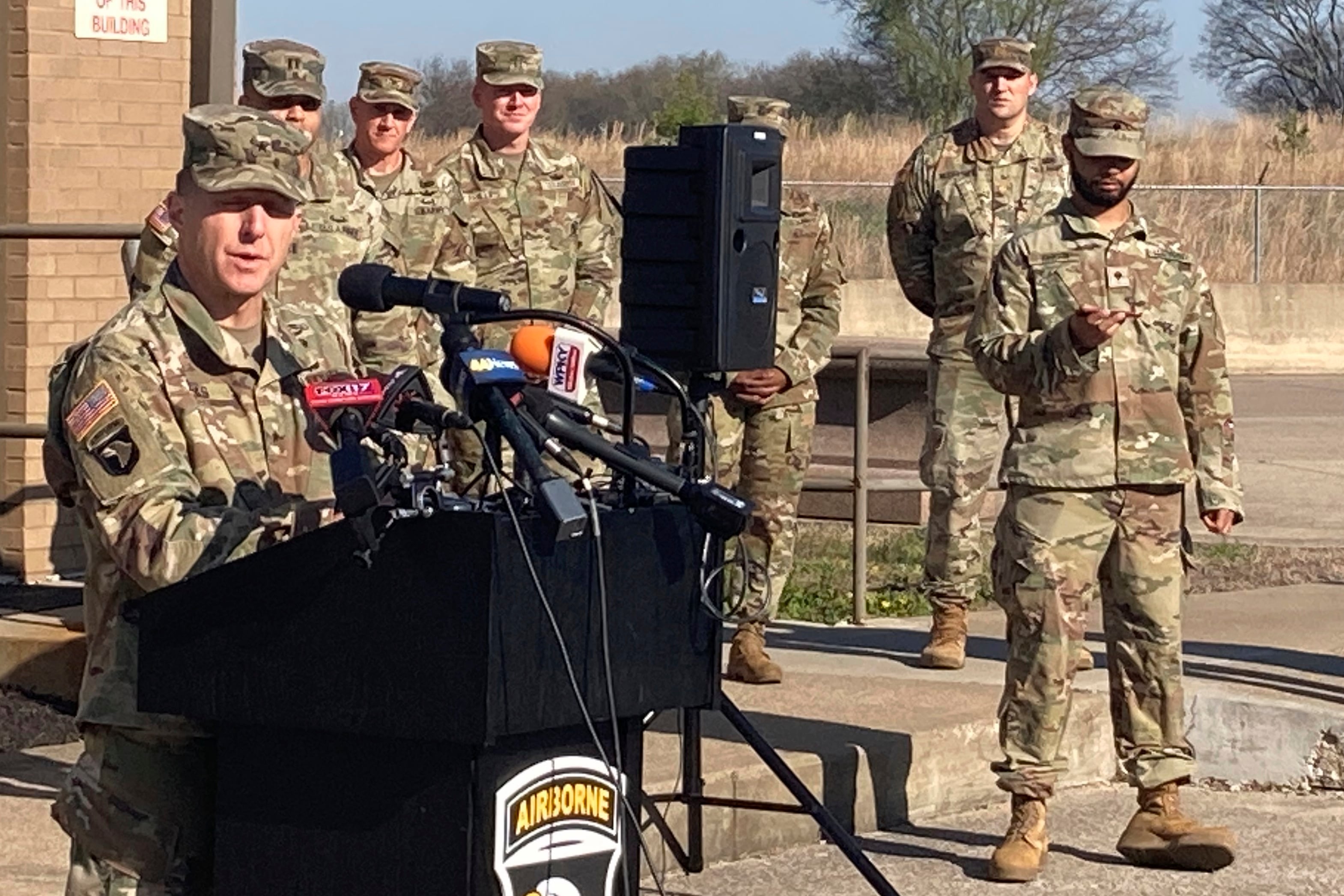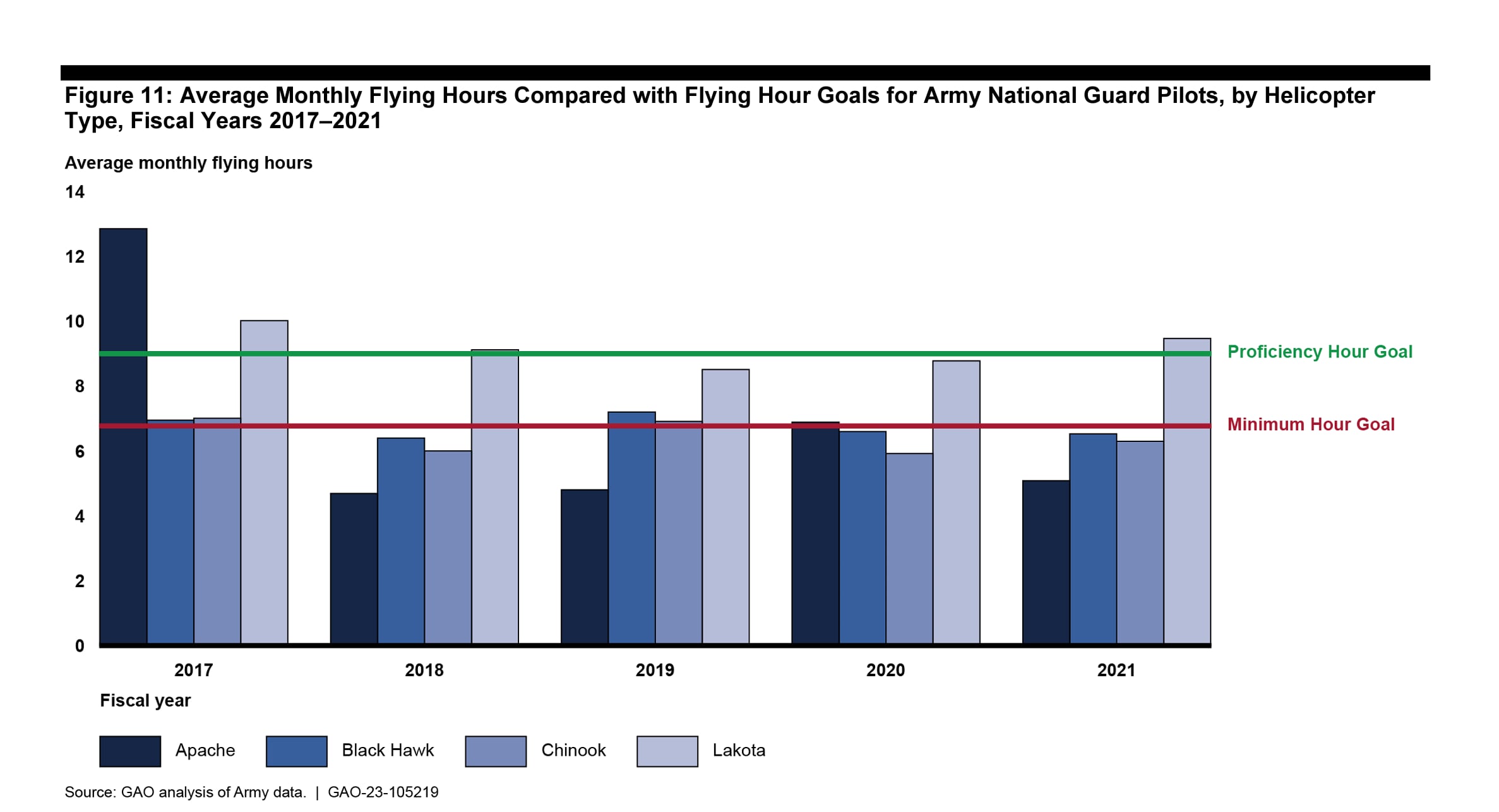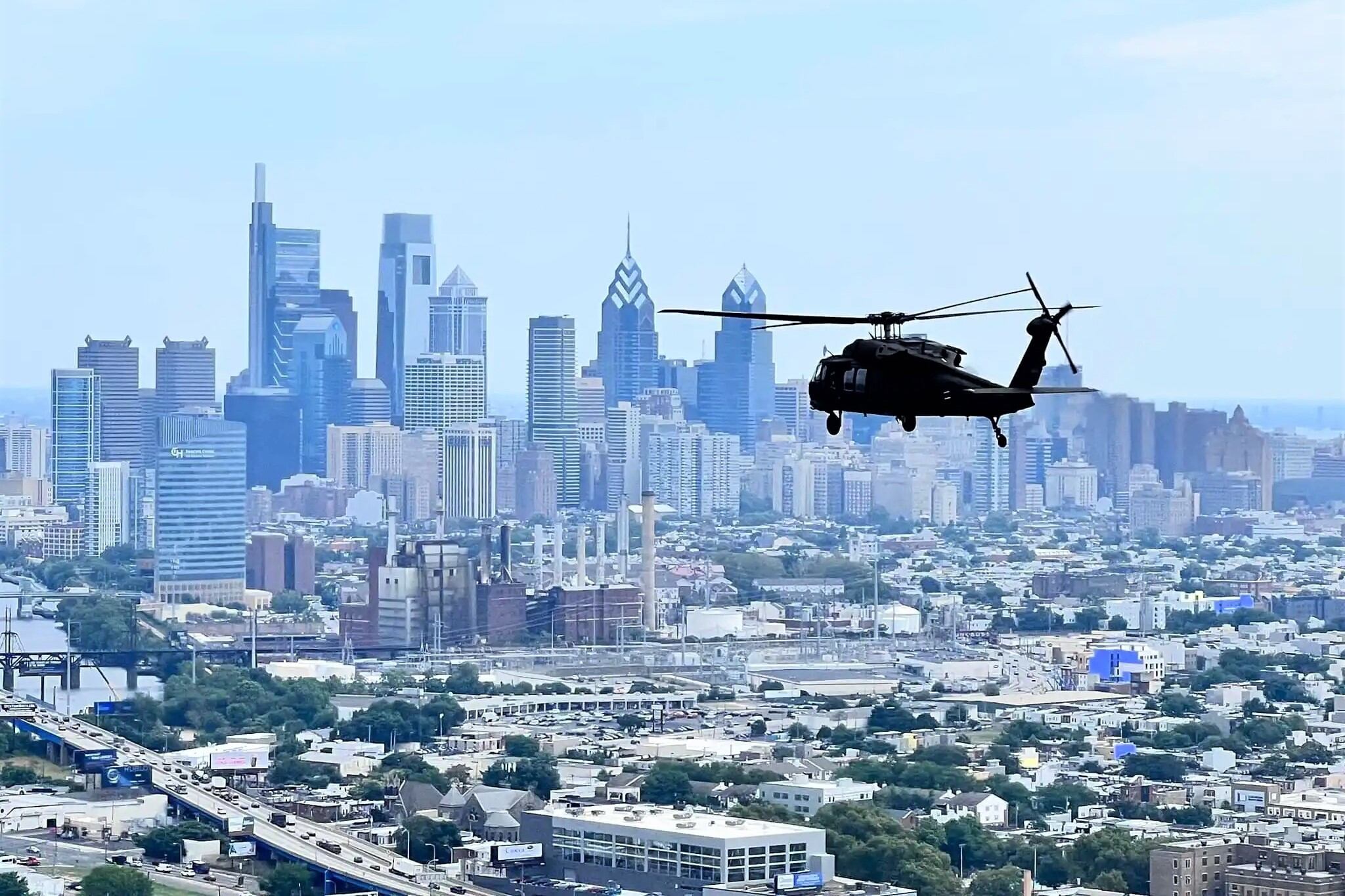The Army National Guard and Air National Guard’s helicopter units are struggling to maintain required flight hours and adhere to safety standards, according to a watchdog agency report published Wednesday.
Although the Army Guard has suffered a lower rate of major crashes than the active duty force, Government Accountability Office officials indicated the shortcomings are translating into pilot error-induced mishaps. The report reviewed crash investigations between fiscal 2012 and fiscal 2021. Watchdog officials also conducted interviews with aviation personnel and reviewed other documents.
The stakes are high — 45 serious helicopter crashes killed 28 Guard personnel during the study period. Losses have occurred more recently as well. In February, two Tennessee National Guard pilots died when their Black Hawk helicopter went down and burst into flames near Huntsville, Alabama. Auditors did not examine the active duty force, which saw nine soldiers die in Kentucky after two helicopters collided on March 29.
RELATED

The National Guard told watchdog officials that the flying hour shortfalls will continue “until at least fiscal year 2026.”
Lawmakers are watching, too — Sen. Chuck Schumer, D-N.Y., penned a Wednesday letter to the services’ top officials urging them to wholeheartedly implement the recommendations.
The senator said he asked the accountability office to conduct the report after back-to-back Guard helicopter crashes in early 2021.
“I am dedicated to providing the Army and the Air Force with whatever resources needed to improve helicopter safety, including purchasing more simulators and hiring more maintenance crews,” Schumer said.
On average, Guard helicopter pilots need a minimum of 6.77 flying hours per month, with nine monthly hours being the standard for “proficiency to support missions and deployments,” the report said.
And crews largely aren’t meeting these annual goals, the accountability office found after analyzing flight records for four major airframes:
- The average Apache pilot missed their minimum hours goal in fiscal years 2018, 2019 and 2021. They failed to reach proficiency in fiscal 2020.
- Black Hawk and Chinook pilots, on average, did not meet their minimum hours goals in fiscal 2018, 2020 and 2021. They did not reach proficiency in fiscal 2019.
- The average Lakota pilot fared best among Guardsmen — they met minimum goals in all four fiscal years and surpassed the proficiency threshold in fiscal 2018 and 2021.

Air National Guard pilots fell similarly short among the component’s three Pave Hawk rescue helicopter wings, with no unit’s average pilot reaching “combat mission ready” flight hours between fiscal 2017 and 2021.
At the flying shortfall’s core, researchers said, is one of the National Guard’s fundamental constraints — the force is composed of primarily part-time personnel who lead civilian lives and careers.
Army and Air Force data indicated that part-time pilots fly significantly fewer hours than their peers whom the military employs full-time, such as Active Guard and Reserve status personnel.
The Guard struggles to get part-timers in the air for “several reasons,” officials told report authors. In addition to basic difficulties with scheduling time around their civilian jobs, it’s harder for such pilots to work around maintenance challenges. And funding to pay pilots for additional flying time often runs out. The same factors contribute to shortages of instructor pilots and aircrews, which can make it even harder to launch helicopters.
Recurring maintenance problems and difficulty accessing flight simulators also impacted pilot training levels, the report said.
The office also highlighted non-standardized risk management documents and difficulty coordinating across state lines “due to the dispersed nature of units,” as well as difficulties staffing safety officer positions and managing their workload.
In response to the report, the services agreed to coordinate with Guard officials in order to review staffing concerns, risk management practices and more.
Davis Winkie covers the Army for Military Times. He studied history at Vanderbilt and UNC-Chapel Hill, and served five years in the Army Guard. His investigations earned the Society of Professional Journalists' 2023 Sunshine Award and consecutive Military Reporters and Editors honors, among others. Davis was also a 2022 Livingston Awards finalist.





